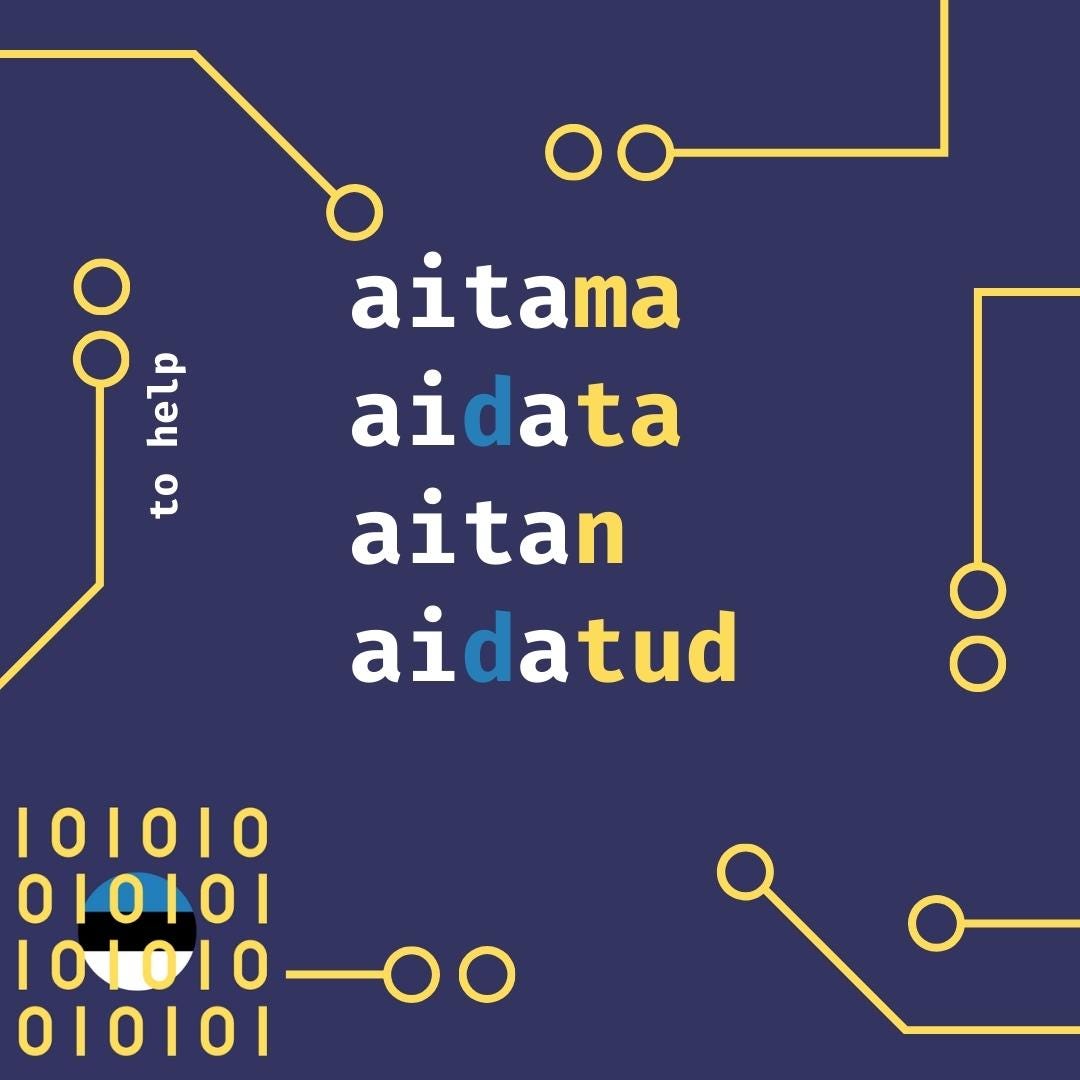Vocab: aitama
to help
to help, to assist, to give assistance, to have an effect on (about an aid), to suffice
Building blocks
We can break down aitama into two parts:
ai-help-ta-causative (“make somebody get/become/do X”)-ma- infinitive ending
The interesting bit here is that this actually used to be a longer word: avitama
And avitama is clearly derived from abi (help).
What happened to the b?
Consonants can change to “softer” or “weaker” versions in Estonian and the b and v sounds are one such pair (which you might be familiar with from Spanish already).
Let’s look at the base forms of leib (bread):
leib, leiva, leiba, leibu
You can see the b changing into a v here and that’s the same thing that happened to “abi” in “avitama”
How to use it
Whom you are helping is the direct object, i.e. indicated by the Partitive case.
If you are helping somebody do something, the somebody is indicated by the Adessive case (the -l case) and the action is named by the da-Infinitive.
Examples
Aus ja otsekohene suhtlus aitab konflikte lahendada.
Literally: “Honest and straightforward communication helps conflicts to solve ”
Idiomatically: “Honest and straightforward communication helps to solve conflicts”
Aus - Adjective - Nom Sg, "Honest"
ja - Conjunction - "and"
otsekohene - Adjective - Nom Sg, "straightforward"
suhtlus - Noun - Nom Sg, "communication"
aitab - Verb - 3P Present Sg, "helps"
konflikte - Noun - Part Pl, "conflicts"
lahendada - Verb - da-Infinitive, "to solve"Aitasime tõsta vigastatu kanderaamile
Literally: “We helped to lift injured on stretcher”
Idiomatically: “We helped to lift the injured onto the stretcher”
Aitasime - Verb - 1P Pl Past Indicative, "We helped"
tõsta - Verb - da-Infinitive, "to lift"
vigastatu - Noun - Gen Sg, "injured"
kanderaamile - Noun - Allative Sg, "on stretcher"Aita mul kotte tassida
Literally: “Help on me bags to haul”
Idiomatically: “Help me haul those bags”
Aita - Verb - 2P Imperative, "Help!"
mul - Noun - Adessive Sg, "on me"
kotte - Noun - Partitive Pl, "bags"
tassida - Verb - da-Infinitive, 


